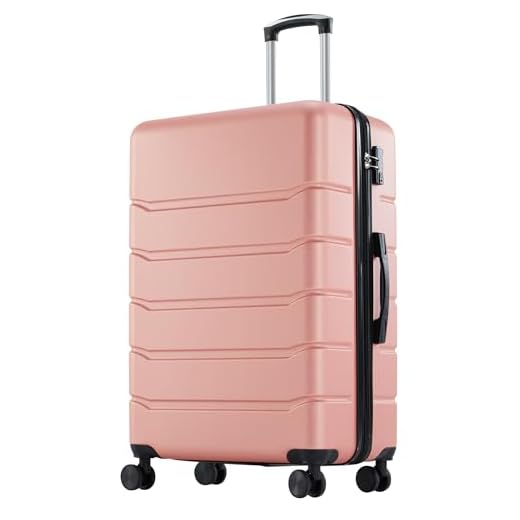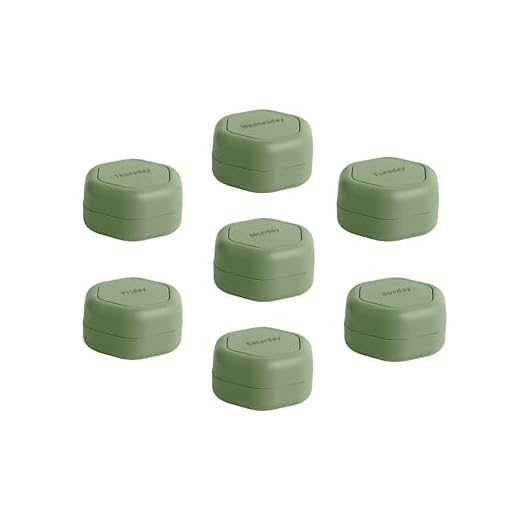







Transporting nutritional aids in your baggage is often permissible, provided that they meet specific criteria. It’s advisable to keep products in their original packaging to avoid ambiguity during inspections. Clearly labeled containers with the ingredients and dosage information facilitate a smoother process at security checkpoints.
Prior to travel, check regulations from your airline and the destination country, as restrictions are common. Certain locations may enforce strict guidelines on the types and quantities of products allowed, particularly those containing banned substances. Carrying a doctor’s note can further mitigate complications if you’re transporting products for medical purposes.
Consider the format of the items being packed. Powders may be subjected to closer scrutiny, so it’s beneficial to have smaller, manageable portions. Store liquid formats in accordance with airport liquid regulations to avoid any issues during security screenings. Familiarize yourself with local customs regulations, as some compounds may be restricted or prohibited upon arrival.
Traveling with Dietary Enhancements
Pack these items in original packaging to ensure clarity. Specify necessary details such as dosage, ingredients, and expiration dates. This prevents misunderstandings at security checkpoints.
Keep quantities reasonable. For long trips, consider splitting products across multiple bags to comply with airline policies. Also, carry a copy of prescriptions or a doctor’s note if any item contains controlled substances.
Airline Regulations and Guidelines
Different airline policies exist regarding these items. Review the specific guidelines of the carrier before traveling. Some may impose restrictions on specific products or quantities due to safety regulations.
Storage Recommendations

Use transparent, resealable bags for all items to facilitate inspections. Properly label each bag for easy identification. Storing in insulated containers may help maintain product integrity during transport.
Understanding Airline Regulations for Supplements

Always verify specific airline policies regarding dietary aids prior to traveling. Regulations may vary significantly between carriers. Many airlines allow nutraceuticals in checked bags, provided they are securely packaged and comply with weight limitations.
Documentation may be required for items that resemble controlled substances, including some herbal preparations. Check the guidelines for international travel, as certain regions impose stricter rules on the importation of specific compounds.
Keep items intact in their original packaging to avoid scrutiny at security checkpoints. If unsure, consider carrying a smaller supply in hand luggage, as airlines typically impose fewer restrictions on personal use quantities. This approach enables easy access during transit.
For cleaning or dilution purposes, ensure you’re using recommended guidelines: for example, best bleach dilution for pressure washing variations may help clarify acceptable practices in necessary contexts.
Additionally, familiarize yourself with restrictions related to liquids. Many airlines enforce limits on liquid volume in carry-on items, which may impact travel plans if any products are in liquid form.
Packaging Requirements for Supplements in Checked Bags
Ensure all items are in their original containers with clear labels that display the product name, ingredients, and dosage instructions. This helps avoid any confusion during security checks.
Container Size and Material
- Use containers that are leak-proof and durable to prevent spills and damage.
- Consider airtight packaging for powders and fragile tablets to ensure safety.
- For liquids, adhere to regulations concerning volume and packaging. Usually, larger containers over 3.4 ounces (100 milliliters) are subject to additional scrutiny.
Quantity Limitations
- Limit the quantity of items to those reasonably necessary for the trip duration. Transporting excessive quantities may raise questions.
- Review airline-specific guidelines regarding maximum amounts per passenger to avoid delays or confiscation.
Consider using a resealable plastic bag for smaller, loose items to contain them and simplify inspections. Keeping all items organized will facilitate a smoother travel experience.
Differences Between Domestic and International Travel
Regulations concerning the transport of dietary enhancements in baggage vary significantly between domestic and international flights. For domestic air travel, typically, there are fewer restrictions, allowing for a wider range of products. Travelers may frequently transport powder-based items and capsules in moderate quantities without extensive scrutiny, provided they are not exceeding specific weight limits set by the airline.
In contrast, international voyages often involve stricter customs regulations and inspections. Different countries enforce varying laws on specific compounds, particularly concerning herbal or exotic products. It is prudent to research the destination’s regulations in advance to avoid potential confiscations at customs.
Packaged contents should bear original labels, and customs declarations might be required. Be mindful of potential language barriers; translating product information may expedite the process during inspections. Always retain a sufficient supply for the duration of the trip to prevent shortages.
Some countries prohibit the importation of certain vitamins, minerals, or other enhancers altogether. Ensure that you are familiar with these limitations to avoid complications. A travel-friendly pouch designed for supplements can aid in organization and quick access during security checks.
Common Types of Supplements Allowed in Checked Luggage
Vitamins, minerals, and herbal extracts are typically permitted in checked baggage. It’s essential to ensure that these items are properly packaged to prevent any spillage or breakage during transit. Below are specific categories of these products that are often accepted:
1. Powdered Supplements
Powdered protein, creatine, and pre-workout formulas can usually be stowed safely. Opt for larger containers to avoid loss during handling, and seal them securely to prevent moisture ingress. Ensure they are labeled clearly to avoid any regulatory issues.
2. Capsules and Tablets
Capsules and tablets can be transported without significant restrictions. Store them in their original packaging when possible. This helps verify their authenticity and ingredients, which can alleviate any concerns from security personnel.
| Supplement Type | Packaging Recommendations |
|---|---|
| Powdered Formulas | Seal in airtight containers; label clearly |
| Capsules/Tablets | Keep in original packaging; ensure labels are visible |
| Liquid Supplements | Follow liquid restrictions; limit to allowable volume |
Adhere to specific volume regulations for liquids or gels, as limitations may vary based on airline or destination. Only pack clear bottles that indicate the contents to avoid unnecessary delays at security checks. For travelers seeking efficient packing strategies, consider investing in the best backpack for working man for convenient organization.
Tips for Traveling with Large Quantities of Supplements
Prioritize keeping all items in original containers. This helps identify the contents and can ease any security inspections.
Pack supplements securely in hard-sided cases to prevent damage and leakage during transit. Consider using resealable bags for additional organization.
Carry a copy of the ingredient list and any relevant certifications, particularly for products that may be questioned at security checkpoints. This can streamline any inquiries made by staff.
Be mindful of weight limits imposed by airlines to avoid excess baggage fees. Weigh your bag before heading to the airport.
Labeling and Documentation
Clearly label containers with your name and contact information, reducing the risk of misplacement. If applicable, include dosage instructions to clarify usage.
Obtain a doctor’s note for any prescription products or non-standard items. This can assist in validating the need for special allowances in some cases.
Storage and Accessibility

Store essential items at the top of your bag or in easily accessible compartments. This aids quick retrieval during security checks.
Consider splitting your supply between checked and carry-on bags. This provides a backup in case of lost baggage and maintains access to critical items during travel delays.
What to Do if Supplements Are Confiscated
Immediately request clarification from security personnel regarding the reason for the confiscation. Understanding the specific regulations they’ve cited can provide insights for future travels.
Gather any documentation that supports the legitimacy of the items in question. This could include:
- Receipts or invoices demonstrating purchase.
- Certificates of analysis proving product safety and compliance.
- Medical prescriptions, if relevant.
If retrieval of the items is permitted, calmly explain your situation to the authorities and present the gathered documentation. Remain respectful, as agitation can hinder resolution efforts.
If local regulations forbid the return, inquire about the possibility of mailing items back home or to a designated address. Some airports may offer this option for specific products.
Document the incident thoroughly, including names of personnel involved, time, and any specific rules referenced. This information may be useful for filing complaints or seeking reimbursement from airlines or insurance.
Consider adjusting future travel plans. Be proactive by researching regulations of the destination or transit countries before the next trip. This includes understanding prohibited items and acceptable quantities.
Lastly, share experiences in travel forums or with health supplement communities. Insights gained can help others avoid similar issues. Building awareness around this topic contributes to a more informed traveling public.








